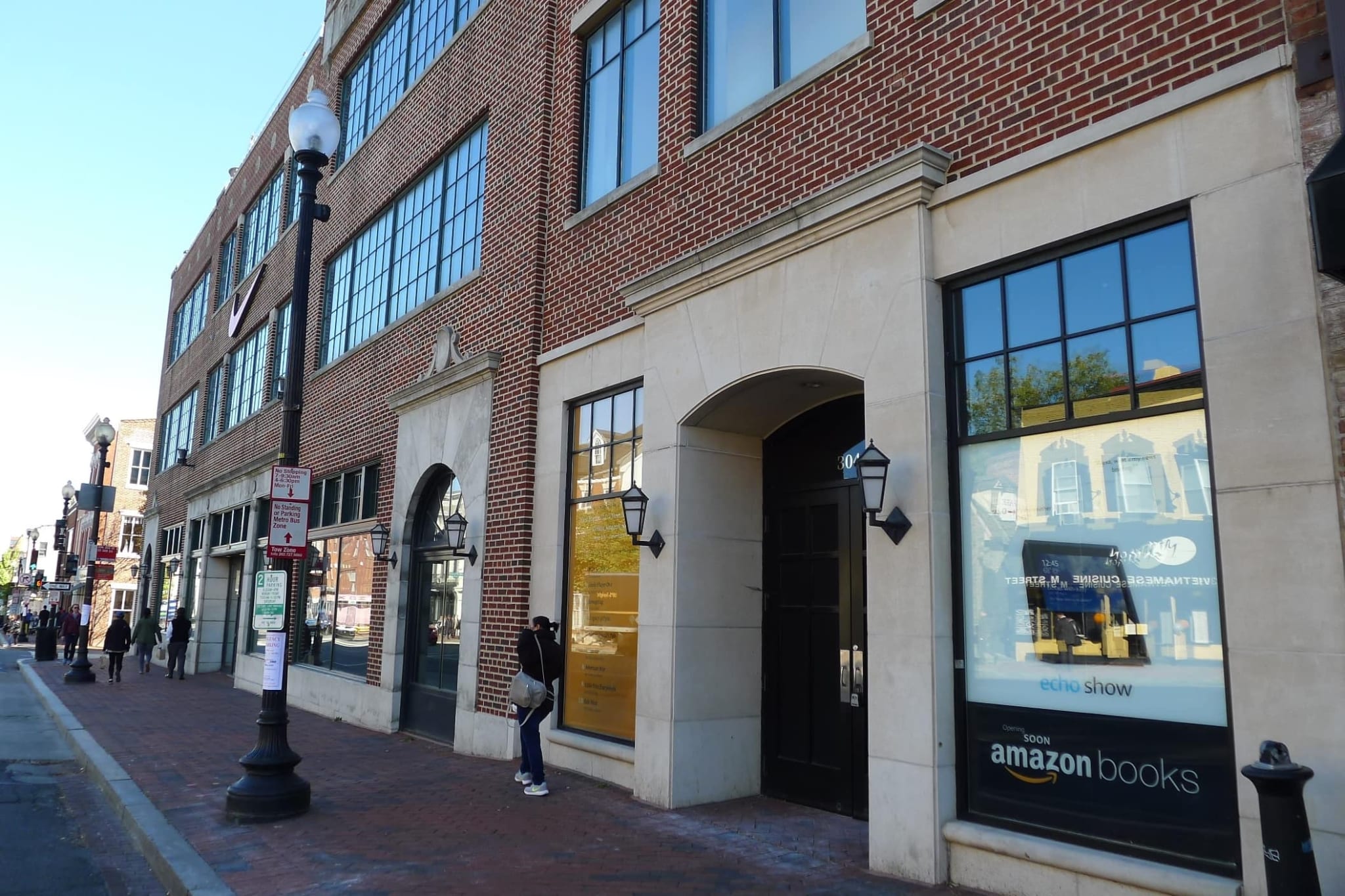Google’s New Search Algorithm Comes Straight Out of 1984
![4783960919_c1e551d4d8_m[1]](https://the-digital-reader.com/wp-content/uploads/2015/03/4783960919_c1e551d4d8_m1.jpg)
THE internet is stuffed with garbage. Anti-vaccination websites make the front page of Google, and fact-free "news" stories spread like wildfire. Google has devised a fix – rank websites according to their truthfulness.
…
A Google research team is adapting that model to measure the trustworthiness of a page, rather than its reputation across the web. Instead of counting incoming links, the system – which is not yet live – counts the number of incorrect facts within a page. "A source that has few false facts is considered to be trustworthy," says the team (arxiv.org/abs/1502.03519v1). The score they compute for each page is its Knowledge-Based Trust score.
The software works by tapping into the Knowledge Vault, the vast store of facts that Google has pulled off the internet. Facts the web unanimously agrees on are considered a reasonable proxy for truth. Web pages that contain contradictory information are bumped down the rankings.
Yes, Google’s researchers think they’ve found a way to measure the truthfulness of site.
I don’t think this is in use yet, and I sincerely hope it never is. Google is too important and too central to the act of finding information online. If this entity ever decided to start judging the truthfulness of websites then I fear it would eventually be corrupted to serve ill ends.
We already know of national governments seizing websites and restricting access to information in an attempt to only share their version of the truth; if Google got into the game then we could well end up with something out of 1984.
Given that there’s a common saying now that one should never memorize what one can look up, my fear is less a conspiracy theory than life imitating art:
And if all others accepted the lie which the Party imposed – if all records told the same tale – then the lie passed into history and became truth. "Who controls the past," ran the Party slogan, "controls the future: who controls the present controls the past." And yet the past, though of its nature alterable, never had been altered. Whatever was true now was true from everlasting to everlasting. It was quite simple. All that was needed was an unending series of victories over your own memory. "Reality control," they called it: in Newspeak, "doublethink."
– 1984
And the worst thing is, by controlling Google’s version of the truth, Orwell’s Ministry of Truth wouldn’t even need to eliminate or correct the print copies of the doubleplusungood content; they could simply make the online copies impossible to find.
This isn’t the first novel change Google has proposed for its search engine; they’ve long since decided to punish any deliberate SEO manipulation. They also downrank (an Orwellian word, now that I think about it) poorly written content, businesses which thrive on negative publicity, and other sites which Google doesn’t approve.
But the problem with all that downranking is that it is a judgement call which is then applied mechanically. And when it comes to truth, well, there are many topics where there is no single truth.
What’s more, there are topics where the official truth has been called into doubt.
Take nutrition, for example. There’s now a debate going on over whether the decades long USDA dietary recommendations are backed by solid scientific research. The official truth could well be proven wrong in the near future, but if you had to depend on Google’s new search algorithm you might never find that out.
When it comes to scientific progress, the facts we believe true today might be disproven tomorrow. Unfortunately, you wouldn’t be able to find that out through Google – not until they update their Knowledge Vault.
There are just so many different ways that this is a bad idea that if Google did implement it, Google would render its search engine suspect. We’d have no way of knowing whose truth is being shown in the search results.
image by {Guerrilla Futures | Jason Tester}, Sebastian Anthony
![38463050_63483f85e0[1]](https://the-digital-reader.com/wp-content/uploads/2015/03/38463050_63483f85e01-500x376.jpg)


Comments
Maria (BearMountainBooks) March 2, 2015 um 1:52 pm
The truth is not the same in all places either. For example, I am an avid gardener. The oft-touted "needs sun 6 to 8 hours of the day" for tomato plants is great if you live in the north. In Texas that same 8 hours might well fry your entire crop. I’ve had tomatoes with sunburn from too much sun (any disease or bug that reduces the number of leaves can result in the actual tomato getting too much direct sunlight. Long, hot hours on a plant can also result in sunburn.)
I’ve nearly given up on Google. The last time I researched a purchase, I could barely get past the ads and I don’t mean the ones ad blocker catches–I mean the paid to be first on Google by Amazon, Ebay, etc.
Forums have become a new place of knowledge–but you have to find those first and then do a lot of reading. You have to hope there are people out there documenting and sharing their experiences (I still haven’t found a good source for Tesla or the Porsche Panamera. Nate, could you get in a couple of models, test them and report back??? Need lots of pictures). Google no longer delivers a diverse number of choices. They do not clearly mark ads and they serve up the same sources on multiple pages in multiple ways–pushing out other useful sites.
Nate Hoffelder March 2, 2015 um 2:24 pm
I’d like to, but the review unit was sent COD and I was a little short that day.
Maria (BearMountainBooks) March 2, 2015 um 2:55 pm
How very RUDE of them!
Nate Hoffelder March 2, 2015 um 4:51 pm
I know! And they didn’t even include a driver, like I asked!
Nate Hoffelder March 4, 2015 um 7:38 pm
I’m really having a problem with Google today. They’re spamming the search results with 6 different links to B&N, when one would do and none actually fulfill my needs.
Maria (BearMountainBooks) March 4, 2015 um 7:44 pm
That is precisely what happened to me the last three times I tried using them. The results were bogus ads from high-priced retailers. I was looking for a smaller retailer that might have 1. better pricing 2. customization and 3. answer some questions. At one point, I even had the NAME of a company. I typed in the name and it was something like 15 on the list–after Amazon, Ebay, SEARS, a couple of other big name retailers and so on.
Nate Hoffelder March 4, 2015 um 8:15 pm
Do you know when those ads are the worst? It’s when you know that you’re looking for a specialty item carried on only a few sites – and that the ad sites don’t carry the product.
Maria (BearMountainBooks) March 4, 2015 um 8:24 pm
Yup and those big-guy ads show up anyway–even though Ebay or Amazon might not have a single listing of the search item. It’s crazy. They are ruining the entire purpose of a search. Yahoo is just as bad. Some of the smaller search engines serve up a slightly better selection (I’ve been using duckduckgo) but for the thousands of companies out there, the representation on search returns is dismal.
Nate Hoffelder March 4, 2015 um 8:37 pm
Oh, don’t get me started on Ebay … That spammer.
puzzled March 2, 2015 um 5:08 pm
"Facts the web unanimously agrees on are considered a reasonable proxy for truth."
What part of "The Internet" doesn’t Google quite get?
Nate Hoffelder March 2, 2015 um 6:03 pm
The parts that involve people and not software or websites.
I think it's Time We DuckDuckWent to DuckDuckGo | Ink, Bits, & Pixels April 9, 2015 um 12:04 am
[…] through the filter, putting press releases at the top of the news search results, and developing Pontius Pilate's search algorithm, Google has given me 4 solid reasons to flee to another […]
Are Google's Search Results Promoting Genocide Denial? | The Digital Reader July 27, 2016 um 1:19 pm
[…] topics. Google claims to be able to judge the authority and accuracy of a site (they even have a patent on judging truth). Maybe they should apply their search engine algorithms as a filter on their […]